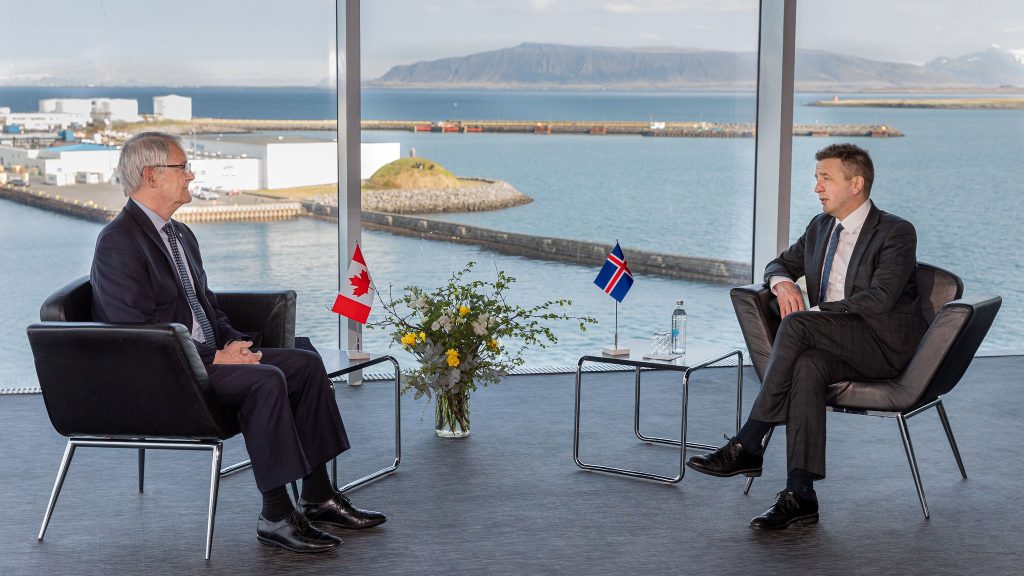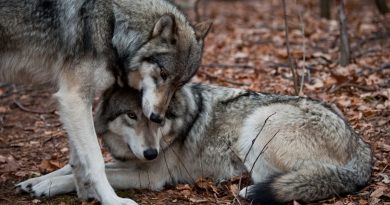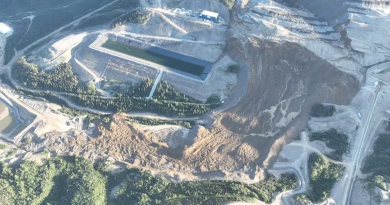Arctic Council united on northern cooperation, says Canada’s foreign minister

Canada’s Foreign Affairs Minster Marc Garneau says the Arctic Council is united on northern cooperation, despite geopolitical tensions that may emerge elsewhere in the world.
“I met with all seven of my foreign minister counterparts, I met with [the Arctic Indigenous organizations] and everybody agrees on the founding principles and purpose of the Arctic Council,” Garneau said in a phone interview with Eye on the Arctic after the May 20 Arctic Council ministerial meeting in Reykjavik.
The Arctic Council is an international forum made up of the eight circumpolar nations: Canada, Denmark, Finland, Iceland, Norway, Sweden, Russia and the United States; and six Arctic Indigenous groups (known in the forum as permanent participants): the Aleut International Association, the Arctic Athabaskan Council, the Gwich’in Council International, the Inuit Circumpolar Council, the Russian Association of Indigenous Peoples of the North and the Saami Council.
It was founded in Canada in 1996 for the Arctic states to work together on environmental protection and sustainable development.
Military and security issues have been explicitly excluded from the Arctic Council since its founding to allow the circumpolar community to focus on the common challenges of climate change and sustainable development in the North.
“Those are the values and the objectives that guide us as we move forward,” Garneau said. “I think that’s the right approach and it’s certainly the one that Canada supports and we’ve remained steadfast in respecting and sticking to those principles.”
Russia takes the helm
On Thursday, Iceland handed the Arctic Council’s rotating two-year chairmanship over to Russia. Russia outlined sustainable development, environmental protection, socio-economic development and strengthening of the Arctic Council as its chairmanship priorities.
Russia’s chairmanship comes at a time of increasing tensions between it and the West over the country’s actions towards Ukraine, which included sending tens of thousands of troops to Ukraine’s border in April, and concerns in the West about Russia’s investment in military infrastructure in the North.
Most recently, Canada imposed new rounds of sanctions on Russia this spring, prompted by further concerns over Ukraine, the deterioration of Russia’s human rights record and the imprisonment of Russian opposition leader Alexey Navalny.
Garneau nixes resumption of Arctic Chiefs of Defense Staff meetings
During his speech to the other Arctic delegates on Thursday, Russia’s Foreign Minister Sergey Lavrov expressed Russia’s interest in holding an Arctic heads of state summit.
Lavrov also urged the resumption of the Arctic Chiefs of Defense Staff meetings, suspended in 2014 over Russia’s annexation of Crimea, saying it was important to have a forum for military chiefs to discuss emergency response and search and rescue issues.
Garneau dismissed the suggestion, but said that wouldn’t affect cooperation on climate and northern development.
“[The resumptions of the Arctic Chiefs of Defense Staff meetings] is not something that we support,” Garneau said.
“Russia of course takes over the [Arctic Council] chairmanship and we’ve seen their strategic vision and things are looking good: the importance of the environment, people first who live in the Arctic, and sustainable development, which is very important for Canada. That’s the vision of the Russian strategy that’s presented going forward, and we think that’s the right approach.
“We want that region to continue to be stable, safe and prosperous. And we want to ensure that as we move forward and adapt, because of climate change, that we try to minimize the effects of things such as black carbon, heavy fuel oils, plastics in our oceans, and taking care of the importance of fish stocks.
“I think the next two years will be very successful in terms of addressing issues that are very important for the Arctic.”
Write to Eilís Quinn at eilis.quinn(at)cbc.ca
Related stories from around the North:
Canada: The Arctic Council is back on track … or is that a rut?, Blog by Heather Exner-Pirot
Finland: Finnish PM stresses importance of Arctic Council for region’s stability amidst climate change, Yle News
Iceland: With U.S. climate drama behind them, can the Arctic Council turn the page in Reykjavik?, Eye on the Arctic
India: Pole to Pole: India’s Arctic White Paper, Blog by Marc Lanteigne
Norway: Norway’s FM confirms participation in upcoming Arctic Council ministerial, The Independent Barents Observer
Russia: Return to form for Arctic Council as Russia assumes leadership from Iceland, Eye on the Arctic
United States: Russian, U.S. foreign ministers to meet on sidelines of Arctic Council meeting, Eye on the Arctic



